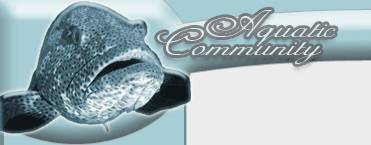Egyptian Tortoise Care
 By: Johan
By: Johan 
The Egyptian tortoise (Testudo kleinmanni) is a highly endangered species in the wild. Despite this, large amounts of Egyptian tortoises are still wild caught each year to be sold domestically or exported to other countries. As long as the pet trade continues to sell new wild caught Egyptian tortoises, it promotes the extinctions of Egyptian tortoises in the wild. Purchasing wild caught Egyptian tortoises is therefore highly advised against.
In many parts of the world it is not only unadvisable but also illegal to obtain wild caught Egyptian tortoises, since the species is protected by CITES (The Convention on International Trade in Endangered Species of Wild Fauna and Flora). In many countries, customs have the right to seize any specimens of Egyptian tortoise that you try to bring into the country. In the United States, Federal law outlaws most forms of commercial sale of turtles and tortoises where the carapace (shell) is smaller than 4 inches. You can prevent the extinction of the wild Egyptian tortoise population by never purchasing newly wild caught Egyptian tortoises.
Egyptian tortoise care – temperature
The Egyptian tortoise is native to a warm part of the world and providing it with a warm home is therefore a vital part of proper Egyptian tortoise care. Really hot temperatures should however be avoided, since this tend to make the tortoise really sluggish. Keep in mind that these tortoises hail from a Mediterranean climate where they are as most active during the milder parts of the year. Really hot or really cold temperatures will make them inactive. Providing your pet with temperatures in the 70°s is therefore a recommended part of Egyptian tortoise care.
Egyptian tortoise care – food
Getting your Egyptian tortoise to eat in captivity is an imperative part of proper Egyptian tortoise care. An Egyptian tortoise can be very reluctant to try new types of food but will usually be convinced over time. Offering your Egyptian tortoise a selection of several different types of food can be a good part of your Egyptian tortoise care, since it will usually find at least a few things that it perceives as eatable.
In the wild, the Egyptian tortoise feed on rough grasses, herbs and fruit. A lot of the species growing in its native range is however difficult to obtain in other parts of the world. Fortunately, the Egyptian tortoise can be coaxed to accept species that it would never encounter in the wild. You can for instance try feeding your tortoise tree leaves, green leafy weeds, dandelion flowers and similar as a part of your Egyptian tortoise care. Since the Egyptian tortoise eats fruits in the wild, you can preferably add a selection of fruits to the diet. Grated carrots as well as sweet potatoes are also known to be appreciated by many captive specimens. Some pet owners add rabbit pellets to boast the fibre content of the tortoise’s diet.
Giving your Egyptian tortoise herb species that grows in the native region of the tortoise is by no means a sure way of getting it to eat. Captive specimens frequently refrain from eating plant species growing in their natural environment.
Egyptian Tortoise Articles:
Egyptian Dwarf Tortoise
